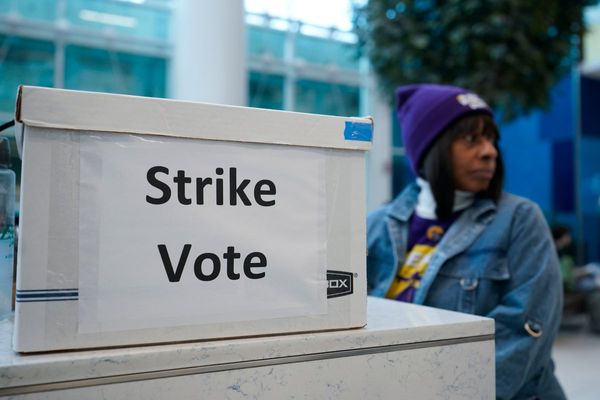
Senator Kimberley Kitching’s tragic, untimely death last week came at an uneasy time for the opposition. For months, the kind of factional shitfight Victorian Labor does so well had been simmering away, delaying preselections, and leaving Kitching’s future in doubt.
Since her death, some of that tension burst to the surface, and hardened into a very particular narrative: that Kitching, ostracised by many within her own party, was mired in a toxic, stressful backroom battle that took a serious toll on her health.
There’s an element of truth to this. Kitching, herself a controversial factional warrior with a propensity to freelance, had been increasingly marginalised within the party, especially since close friend and closer factional ally Bill Shorten lost the leadership. But that narrative has also been stretched to cynical lengths, and turned the senator’s death into an opportunity for political point scoring.
The factional background
Kitching died with her preselection still unconfirmed. The only other member of Labor’s caucus in that kind of political limbo was fellow Victorian Senator Kim Carr, a veteran of the left faction.
Both had lost favour for different reasons. Carr, a Senator since 1993, has been facing attempts to unseat him for years, and a new crop of Left-aligned players are jostling for the seat. They include Linda White, formerly of the Australian Services Union; McKell Institute executive director Ryan Batchelor; and prominent labour lawyer Josh Bornstein.
But it’s less common to dump a senator after a single term, and the reasons behind Kitching’s political cold shouldering are a bit murky. In part it’s because Shorten, who angered many in the party by making her his captain’s pick for the Senate in 2016, lost the election. There’s no doubt she’d have had a far greater profile in a Shorten Labor government.
Then there’s the messy, arcane factional staff. Kitching belonged to the Victorian right, specifically a subgroup associated with Shorten and the Australian Workers Union (there are around six such subgroups). But the Adem Somyurek branch-stacking scandal led to a realignment within the party, where a rival right subfaction aligned with the Shop, Distributive and Allied Employees Association won out. It also led to Labor’s national executive taking over control of the state branch, a move that could end up before the High Court.
With all that going on in the background, there was a perception within Canberra that despite Kitching’s strong committee performances, her China hawkishness and subsequent closeness with many on the other side of politics made her a little ideologically suspect.
The victim narrative
It’s through the prism of all that murk — an unravelling factional dispute, and preselections still left hanging — that we should view the push to make Kitching’s death a cautionary tale about the nastiness of politics.
Shorten led the narrative hours after Kitching’s death, questioning whether everything going on behind the scenes had caused fatal harm to her health.
“I can’t tell you why this woman of 52 was taken from us but I have no doubt that the stress of politics and the machinations in the back rooms had its toll,” he said last week.
There’s no doubt Shorten’s tribute came from a place of deep sorrow. But that narrative has morphed into something a whole lot ickier. At the same time, Plumbers Union boss Earl Setches, a factional ally who’d tried to save her preselection, said Kitching’s attempted rolling played a part in her death.
The narrative led to a series of stories in The Australian, blaming Labor’s “mean girls” clique for bullying Kitching. Former MP Michael Danby used it as an opportunity to trash Labor’s Left faction, demanding anyone who bullied Kitching apologise to her family. Carr, perhaps worried about his own dwindling preselection chances, told the Oz Kitching’s death was a reminder for politicians to treat each other better.
But the narrative was also spun into a kind of anti-Labor narrative. Yesterday Prime Minister Scott Morrison, who faces his own fair share of internal tensions, said the bullying allegations were “distressing claims” which couldn’t be dismissed.
Kitching’s death is a tragic loss. But in the week since, what could have been a moment to reflect on the toxic nature of factional politics has only reinforced how tasteless and cynical the Canberra game can be.







